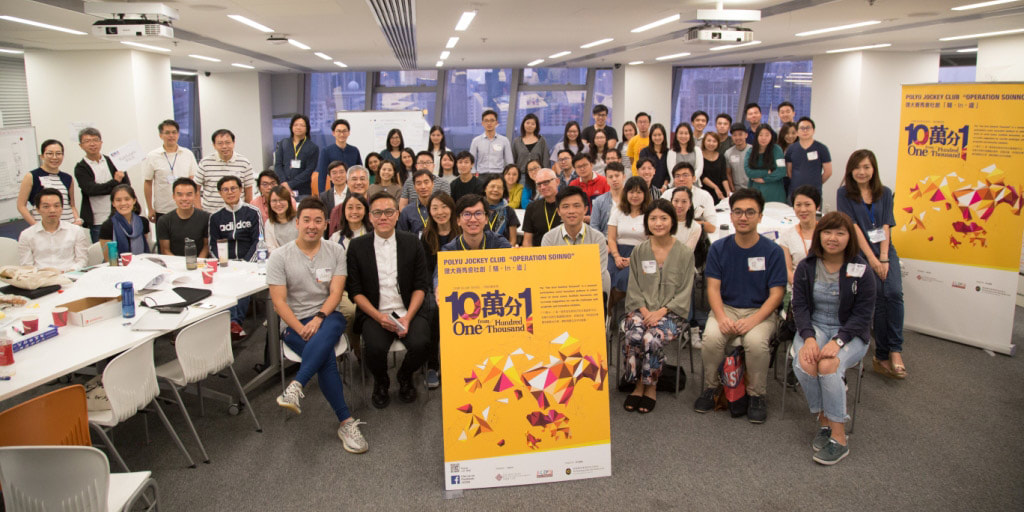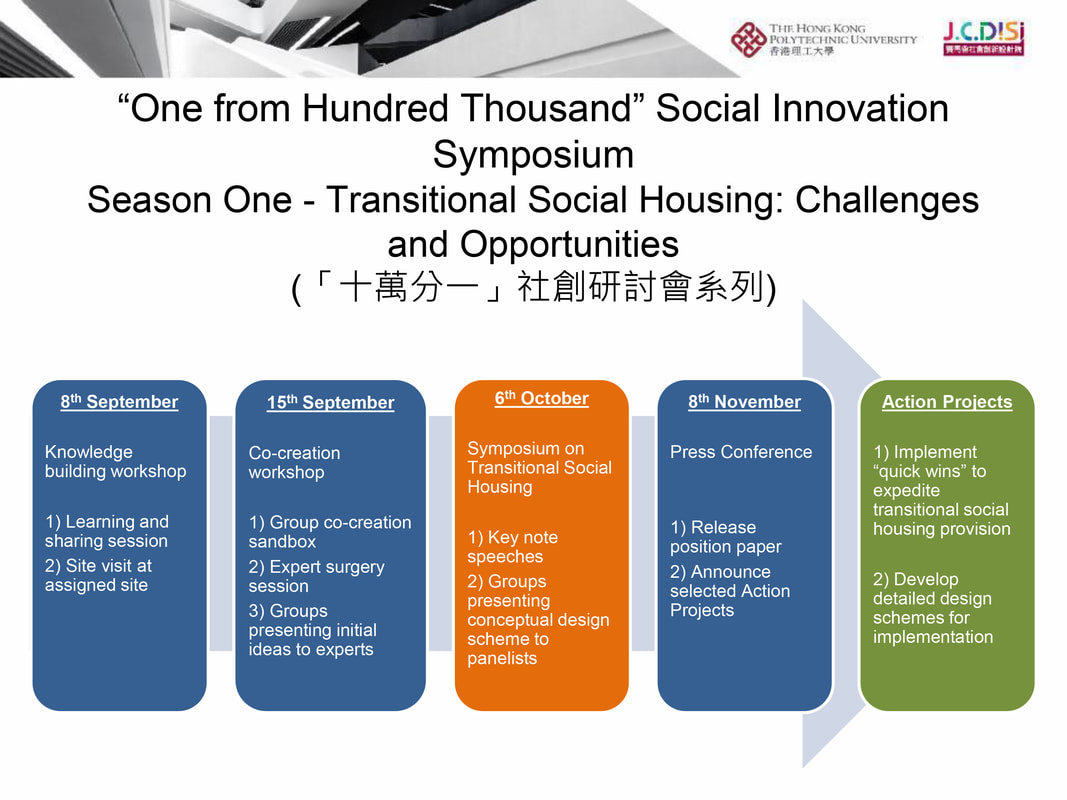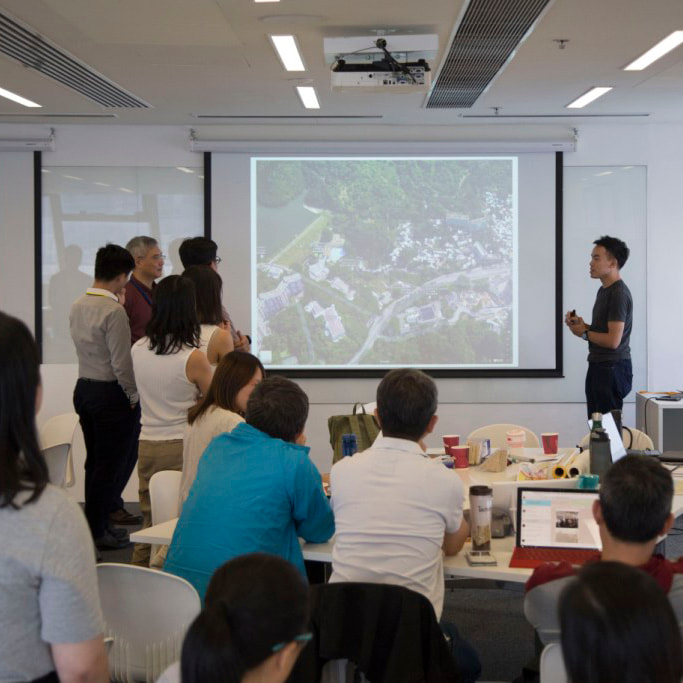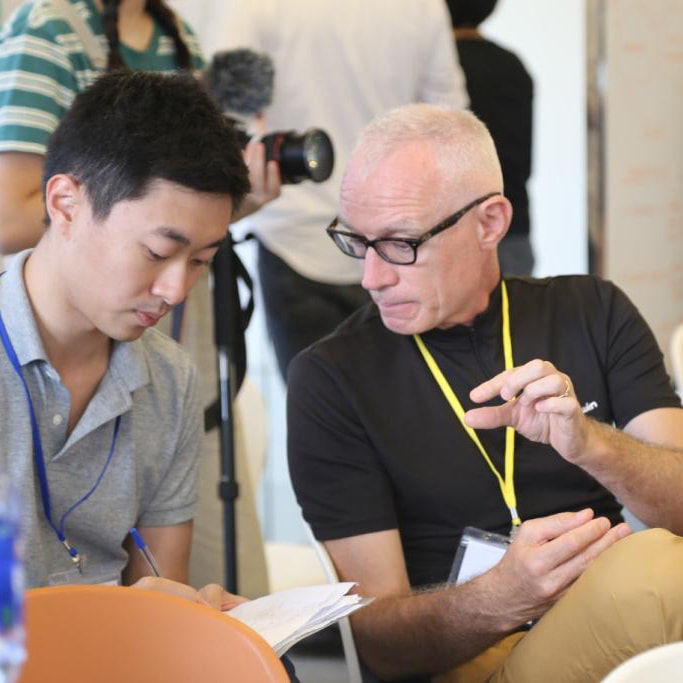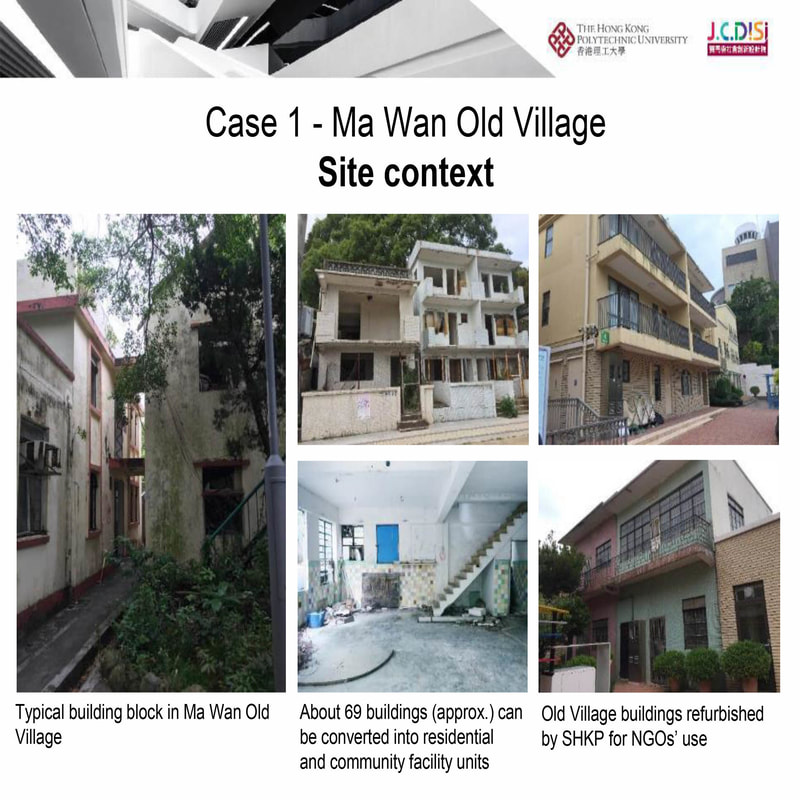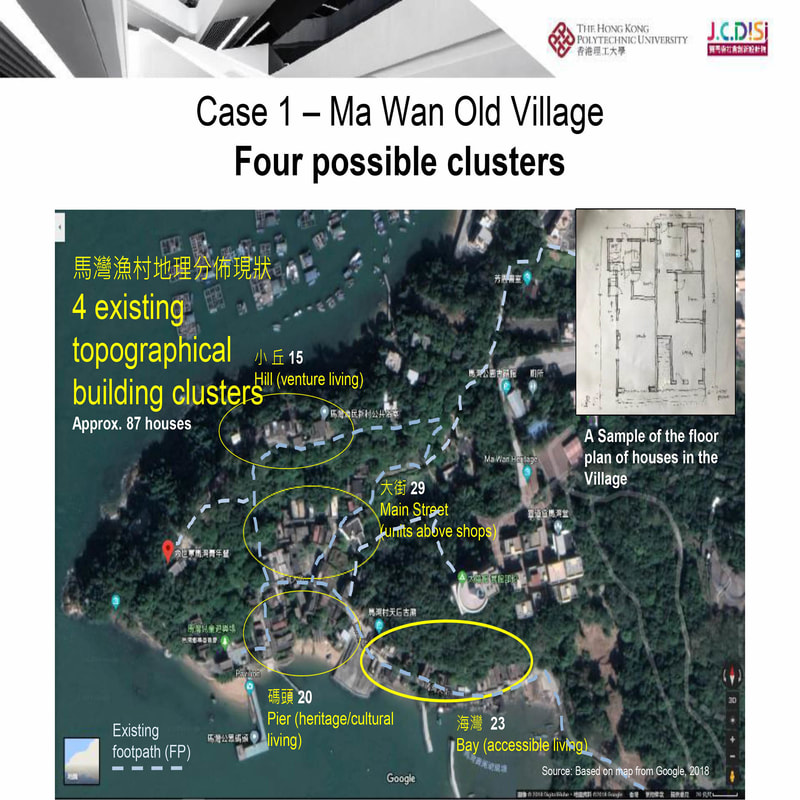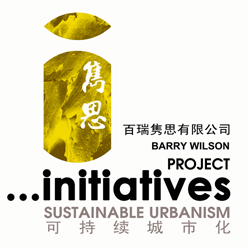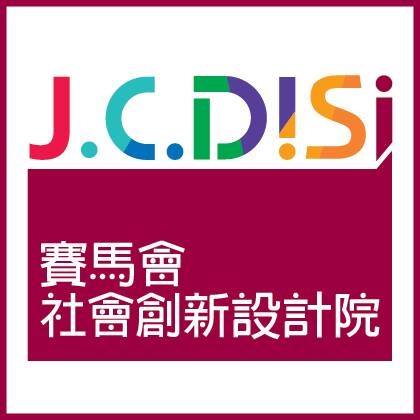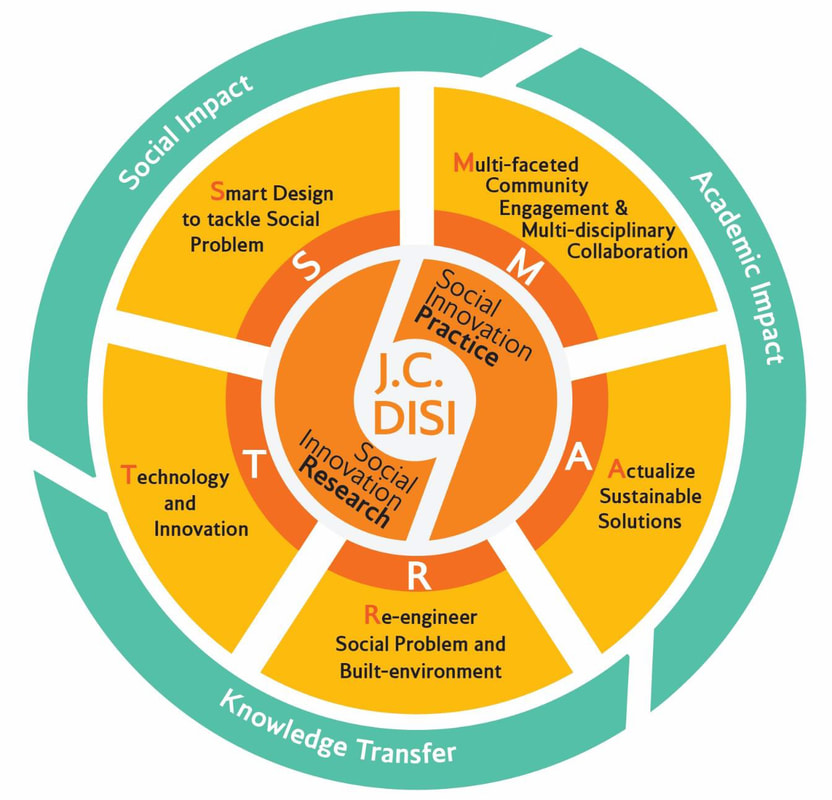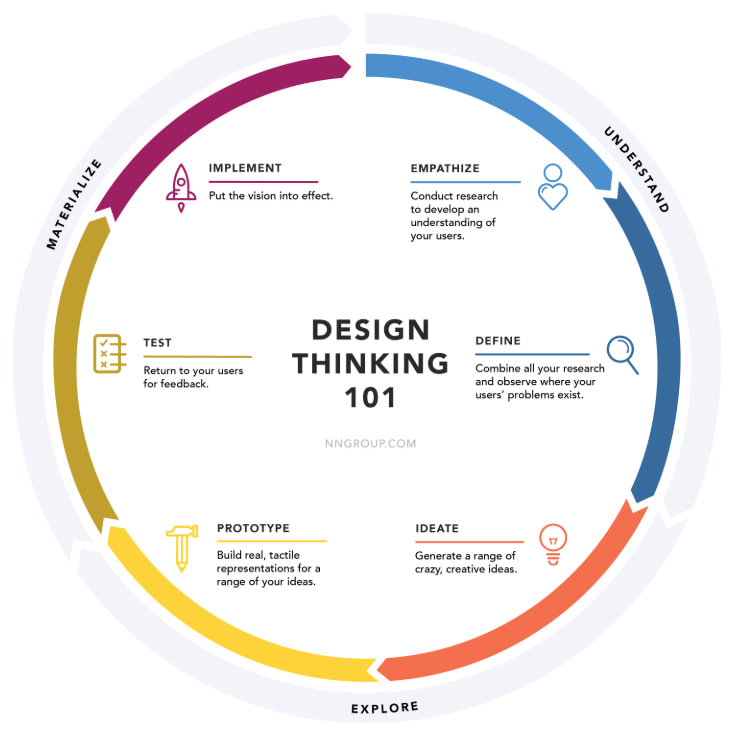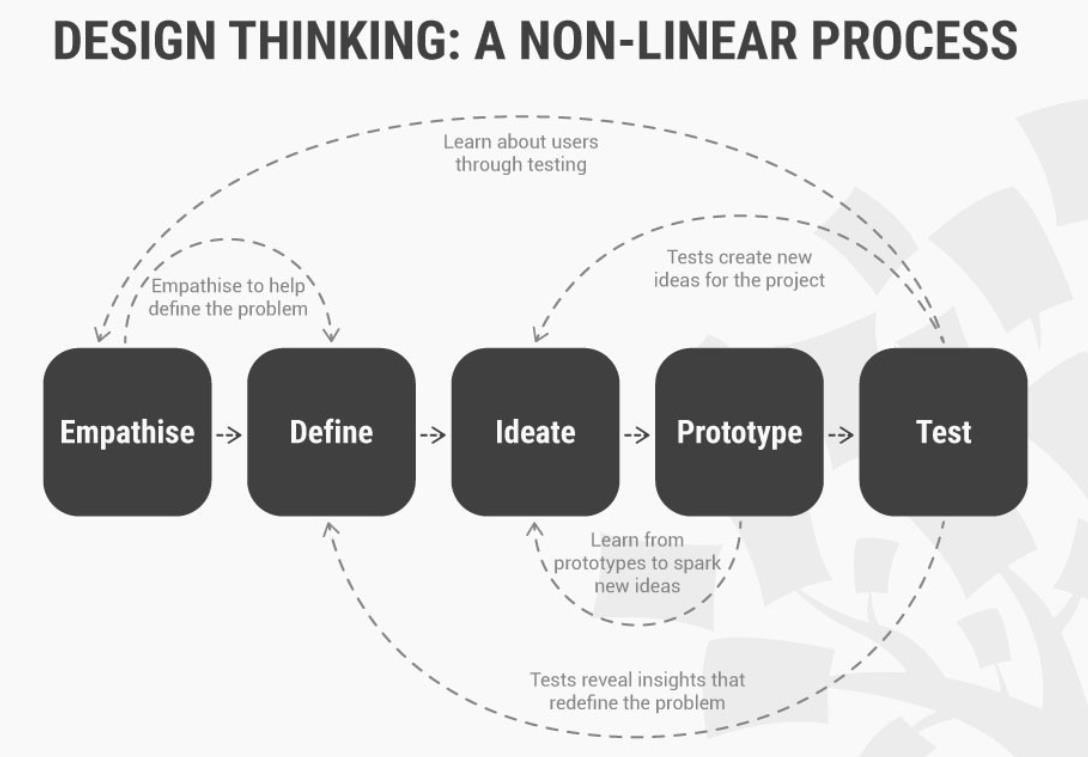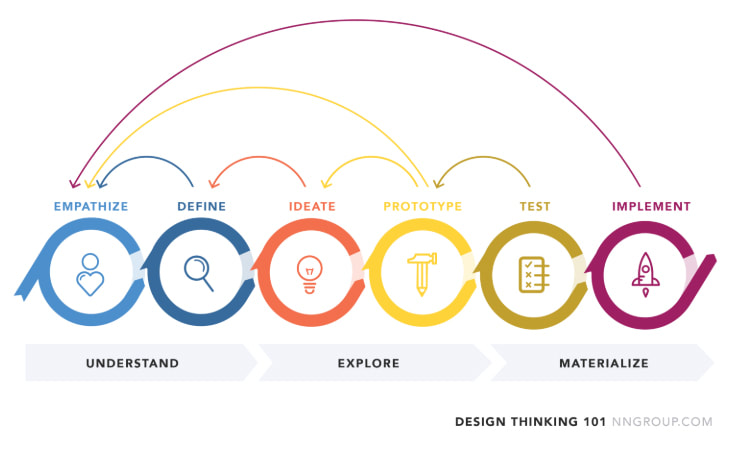|
Transitional Social Housing Workshop
25/09/2018
"One from Hundred Thousand" Transitional Social Housing pre-symposium co-creation workshop was hosted by the Design Institute for Social Innovation at Hong Kong Polytechnic University on 12 September. Professional participants explored new ways to utilise existing building stock for temporary housing solutions whilst considering issues of heritage preservation, sustainable technologies and community lead planning. I was pleased to represent HKIUD as a surgery expert to participants.
TSH is a social innovation which breaks down the dichotomy of private housing and public housing in serving the housing need of grass-root citizens. TSH can be a means to revitalise existing resources such as vacant land or buildings to address social needs. The process of delivery of TSH can facilitate cross-sector collaboration through provision of a co-creation platform to generate innovative yet pragmatic problem-solving approaches/solutions.
|
Founded in 2012, Jockey Club Design Institute for Social Innovation (DISI) was the first design institute dedicated to social innovation in Asia. DISI contributes to advance PolyU’s University Social Responsibility and aims to become a leading institute to trigger social innovation in all dimensions of the society to improve the well-being of the community and the people.
The Mission of DISI is to provide an innovative and human-centred platform to ENVISION a better life in the society, to CONNECT people with passion and NUTURE doers of all ages to INNOVATE with collective wisdom to ENABLE impactful action. The SMART principle of DISIDesign Thinking Approach is advocated by DISI Empathize – with your users
Define – your users’ needs, their problem, and your insights Ideate – by challenging assumptions and creating ideas for innovative solutions Prototype – to start creating solutions Test – solutions |
Services |

